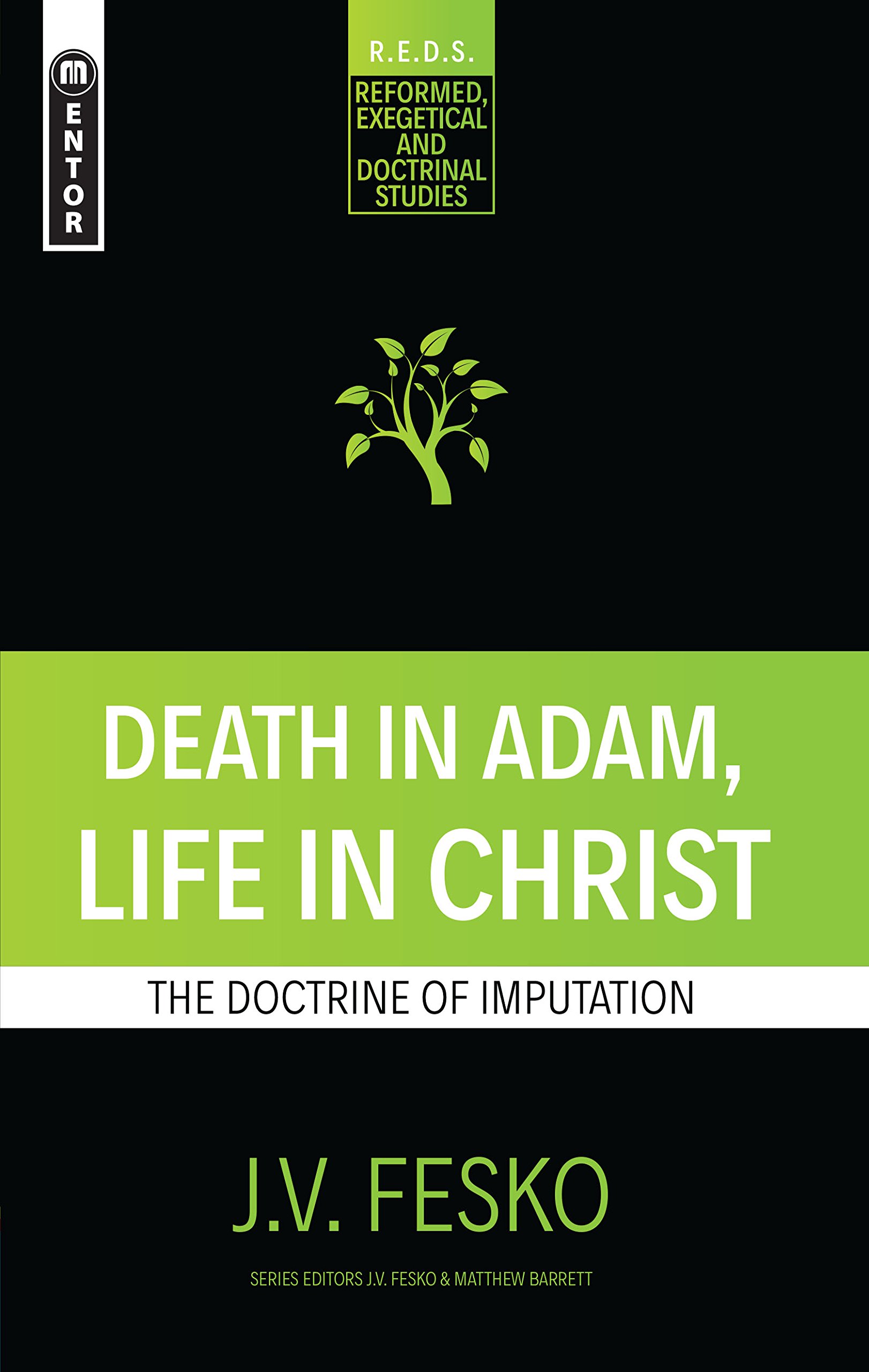A Brief Book Summary from Books At a Glance
by Benjamin Montoya
About the Author
J.V. Fesko graduated from the University of Aberdeen in Scotland, UK, with an earned Ph.D. in theology. Dr. Fesko’s interests include systematic theology, applied soteriology (union with Christ, justification and sanctification, and the ordo salutis), sixteenth- and seventeenth-century Reformed dogmatics, as well as the integration of biblical and systematic theology. He was the pastor of Geneva Orthodox Presbyterian church from 1998 to 2009. He is now presently the Academic Dean and Professor of Systematic and Historical Theology at Westminster Seminary California. He is also an ordained minister in the Orthodox Presbyterian Church.
Introduction
Our culture is one tied up with selfies—focusing on ourselves. Yet, doctrines like imputation remind us that we cannot be focused on ourselves because our lives are tied closely to two others, Adam and Christ. How should we understand this doctrine? It has not received all that much attention in comparison to other doctrines, which is surprising given its centrality. “This essay, therefore, defends the thesis that the doctrine of the immediate threefold imputation (Adam’s guilt to all human beings, the sins of the elect to Christ, and Christ’s active and passive obedience to the elect) is a biblical doctrine. My goal is to present the doctrine as it rests in the cradle of classic Reformed covenant theology, not as an abstract mechanism where imputation is simply the means by which God accounts people guilty and righteous.” As this book surveys the history of this doctrine, the exegesis of Scripture, and considers how to formulate theology concerning this doctrine, the doctrine of imputation will be shown to be biblical and important.
In This Book, You Will Learn:
- The meaning of the doctrine of imputation
- How this doctrine has been understood throughout Church History
- Modern and historical challenges to this doctrine
- Relevant Scriptures for this doctrine
- How to formulate this doctrine
The Larger Contribution of This Book:
In a day in which the doctrine of the imputation of the righteousness of Christ has received much criticism and questioning, Fesko not only responds but insightfully provides a robust survey of history, the relevant Scriptures, and a formulation of the doctrine that accounts well for all the above. This book provides serious thinking on a topic that is so central to our understanding of who Christ is, what He has accomplished, and how that is relevant to us. Certainly, this book is not “light” reading that is conducive to a culture that desires short snippets on social media; nevertheless, this book reminds us to think carefully and fully about key theological topics such as imputation. Rightly understood, however, this book will move us to deeper gratitude and praise of Christ for the glorious nature of the doctrine of imputation.
Table of Contents
Preface
Introduction
Part I
Section 1 The Early Church
Section 2 The Reformation
Section 3 Post-Reformation
Section 4 The American Modern Period
Section 5 The Present Day
Part I Summary
Part II
Section 1 Imputation in the Old Testament
Section 2 Imputation in the New Testament
Part II Summary
Part III
Section 1 The Doctrine of Imputation
Part III Summary
Conclusion
Part I
Throughout the historical survey of this doctrine, theologians have touched on the topic of imputation in a variety of different ways. The Early Church did so as a result of some of the issues it was facing, as is characteristic of a number of issues. The Reformation devoted more direct and full thought to the issue. The Post-Reformation saw developments that rejected, reaffirmed, or modified what had been known with this doctrine. The American Modern period such much as the same as different cultural, philosophical, and hermeneutical commitments arose that conflicted with the traditional formulation of this doctrine. Finally, the Present Day has seen new developments as some have recovered the traditional understanding of the doctrine of imputation whereas others have begun to deny the existence of Adam based on so-called scientific evidence, a denial that creates problems for one’s understanding of the doctrine of imputation. . . .
[To continue reading this summary, please see below....]The remainder of this article is premium content. Become a member to continue reading.
Already have an account? Sign In
